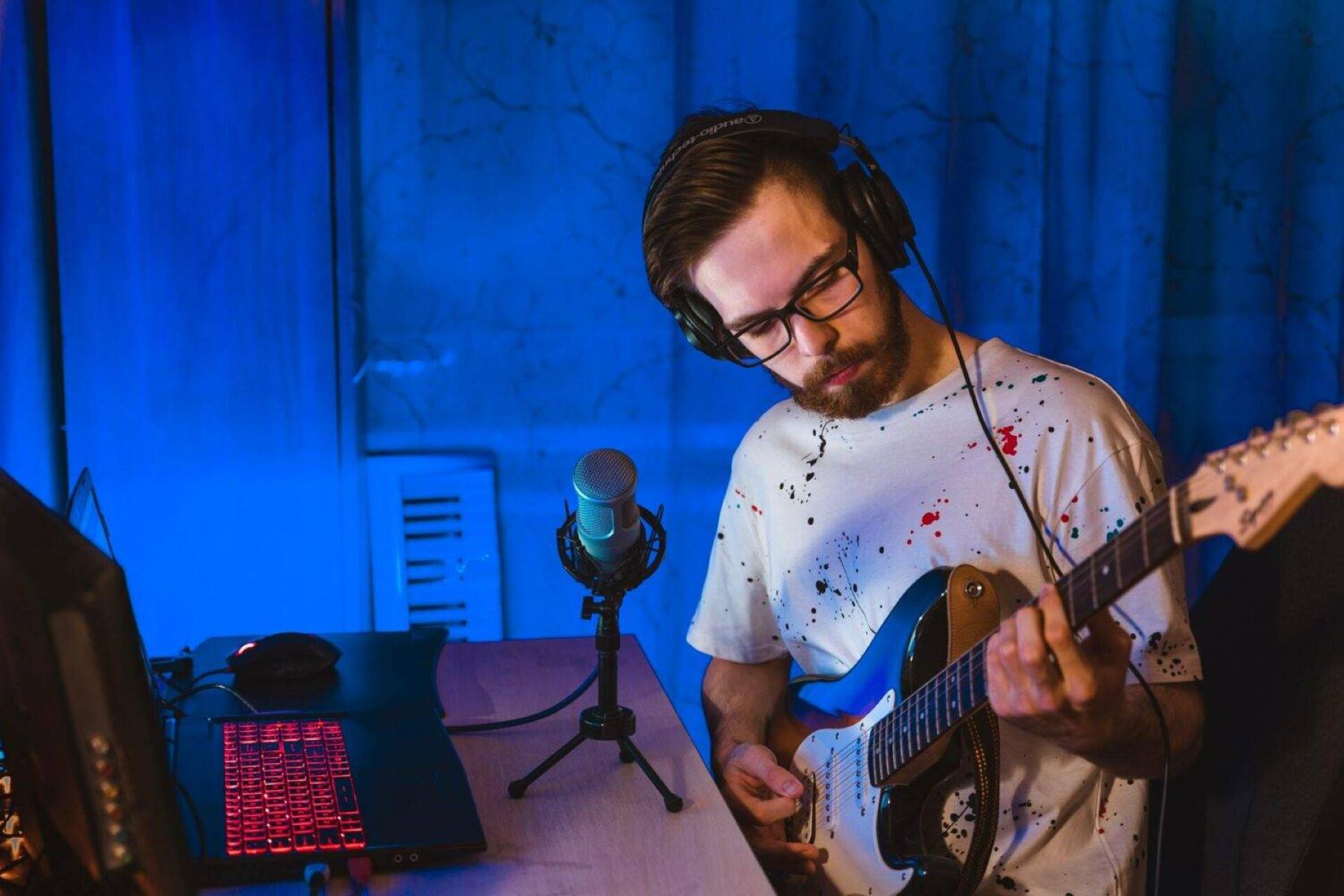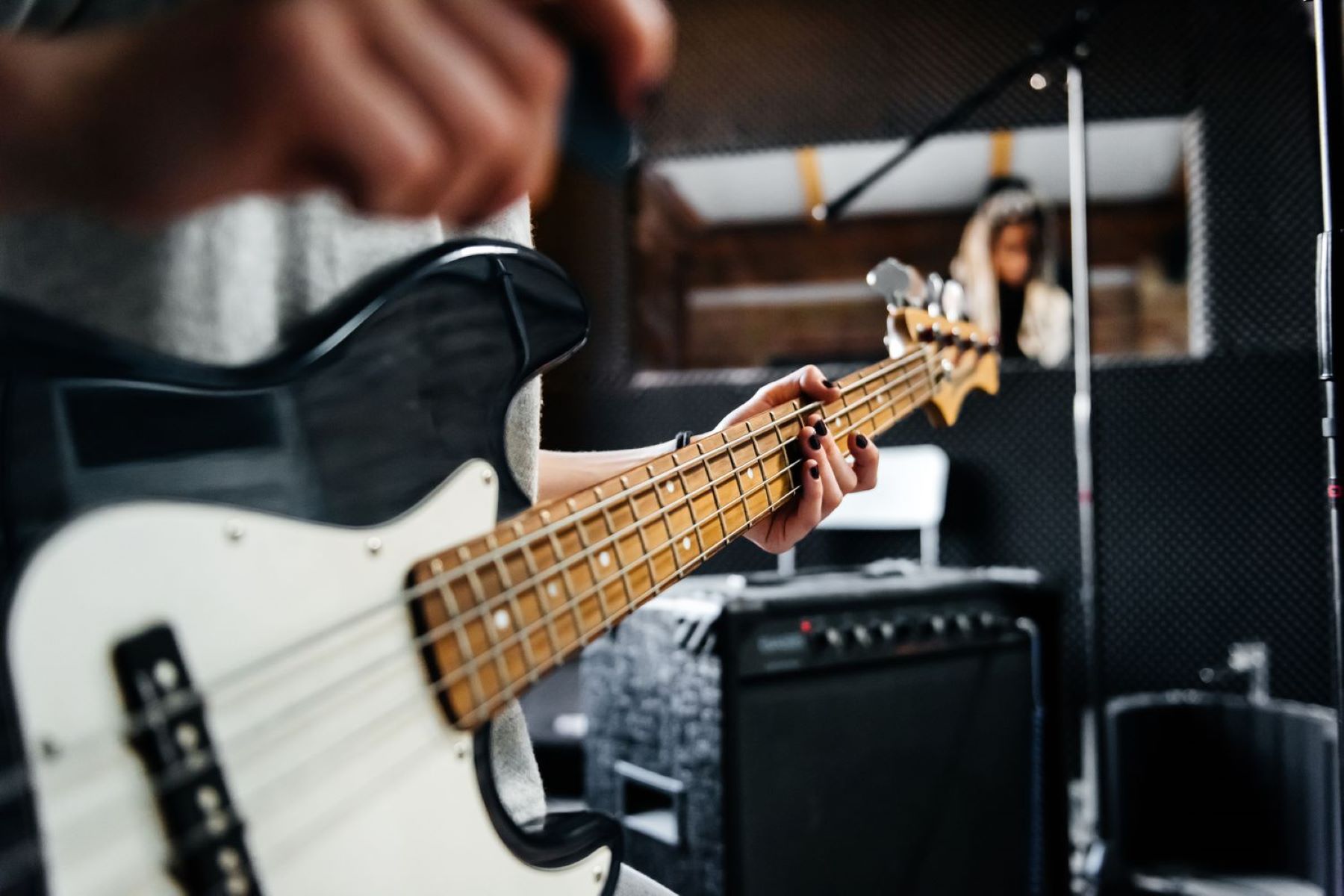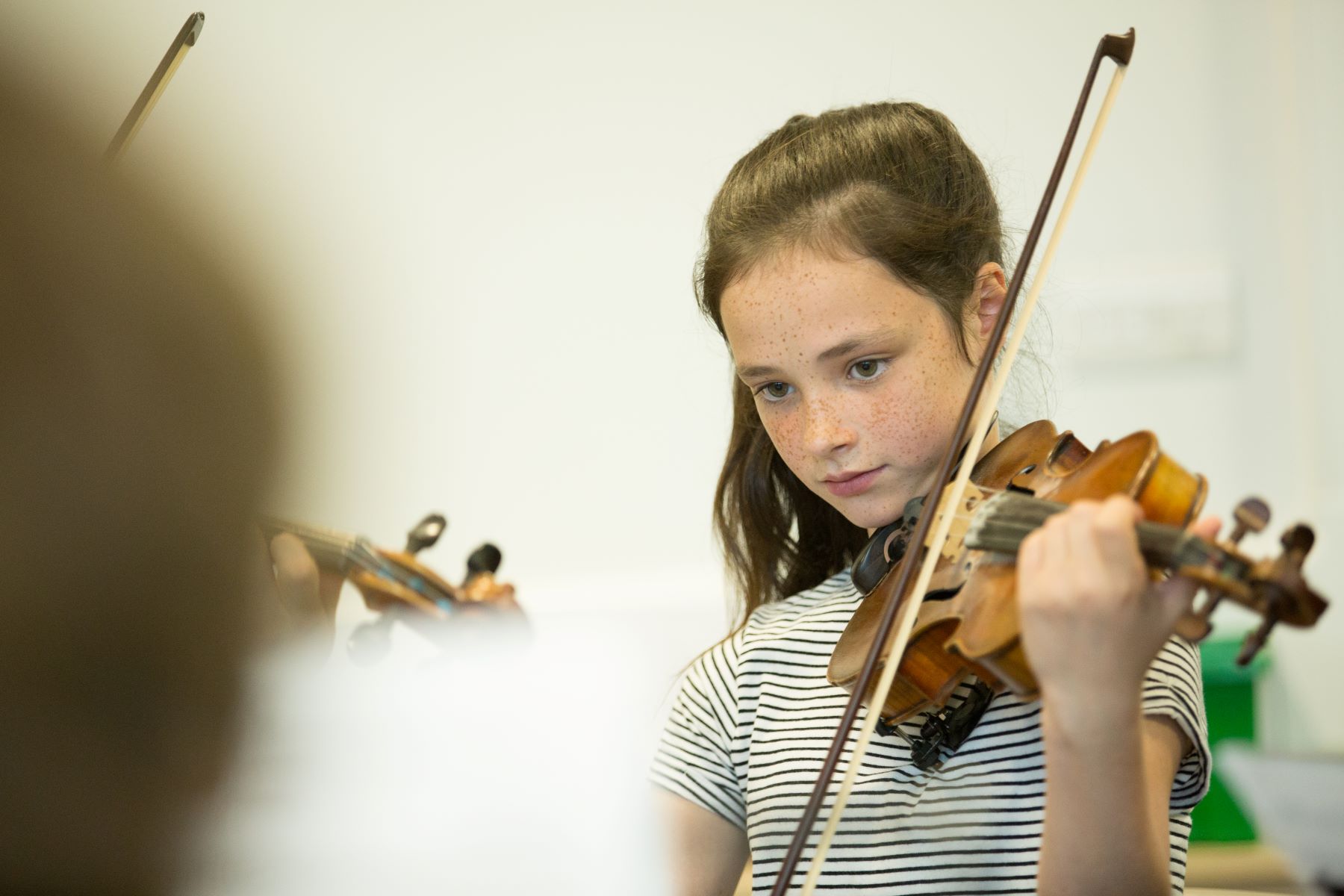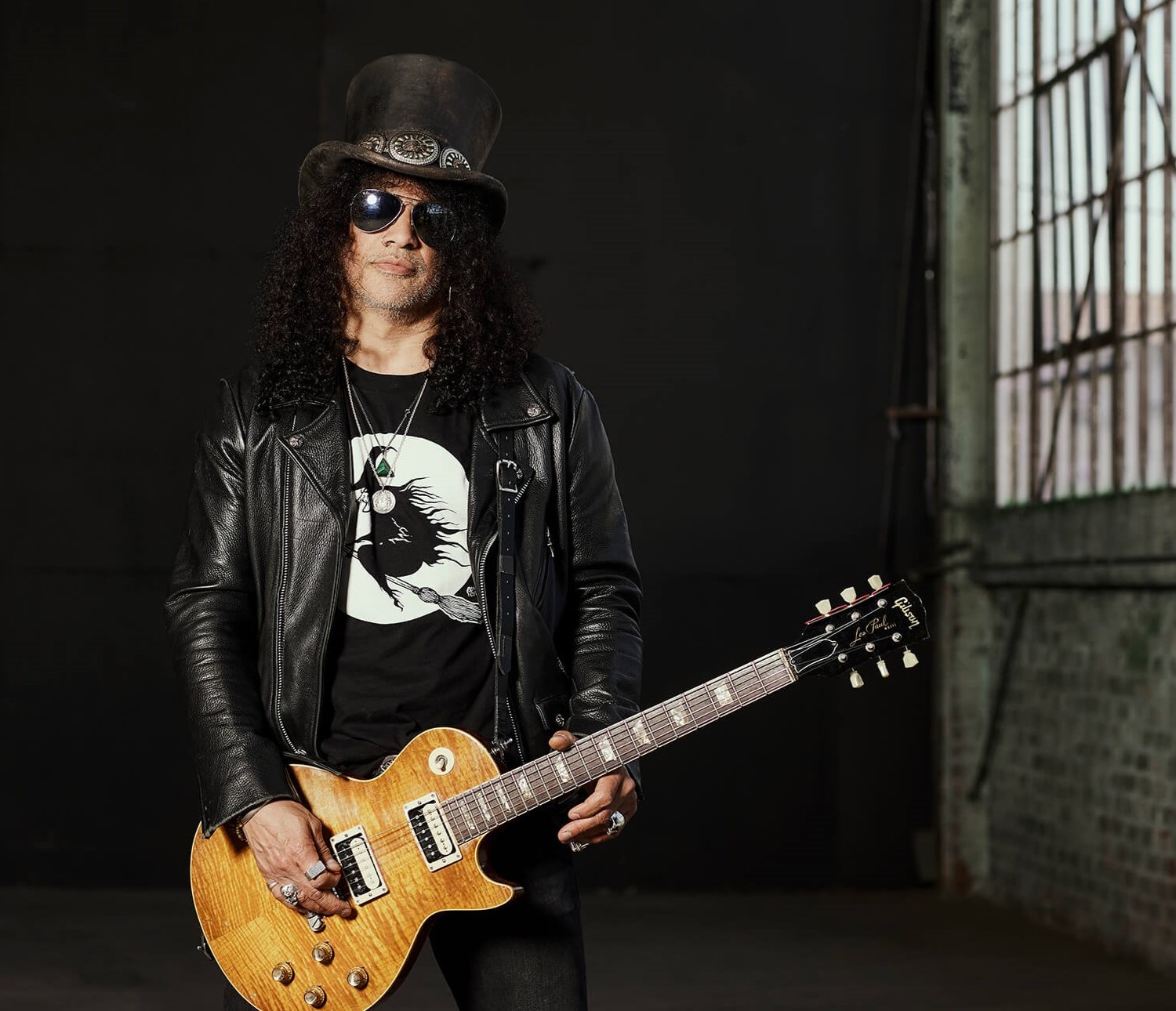Home>Production & Technology>Musician>What Is An Indie Musician


Musician
What Is An Indie Musician
Published: January 28, 2024
Discover what it means to be an indie musician and explore the world of independent music. Unleash your creativity and passion for music as a musician.
(Many of the links in this article redirect to a specific reviewed product. Your purchase of these products through affiliate links helps to generate commission for AudioLover.com, at no extra cost. Learn more)
Table of Contents
Introduction
Welcome to the world of indie musicians! In a realm dominated by major record labels and mainstream artists, indie musicians represent a vibrant and unique community that has made significant contributions to the music industry. But what exactly does it mean to be an indie musician? What sets them apart from their mainstream counterparts? In this article, we will explore the definition, characteristics, and challenges faced by indie musicians, as well as the strategies they employ to market and promote their music.
An indie musician, short for “independent musician,” is an artist who operates outside of the traditional music industry system. Unlike mainstream musicians who are signed to major record labels, indie musicians have full control over their creative process, from writing and recording songs to producing and distributing their music. They are known for their do-it-yourself (DIY) mentality and often take on multiple roles, such as songwriter, producer, manager, and promoter.
What sets indie musicians apart is their freedom to create music without constraints or commercial pressure. They have the artistic liberty to explore various genres, experiment with new sounds, and express their unique perspectives. This creative freedom allows indie musicians to craft music that is authentic, innovative, and often pushes boundaries.
Indie musicians often establish their own independent music labels or work with smaller, grassroots labels that prioritize artistic vision and creative control. These labels provide support and resources for indie musicians, helping them navigate the music industry landscape while keeping their artistic integrity intact. Independent labels allow indie musicians to reach their target audience and build a dedicated fanbase without compromising their artistic vision.
However, being an indie musician is not without its challenges. Unlike mainstream artists who have the backing of major record labels, indie musicians have to wear multiple hats and take on various responsibilities themselves. From promoting their music to booking gigs and managing finances, indie musicians must balance their artistic pursuits with the demands of running a business.
Definition of an Indie Musician
An indie musician, short for “independent musician,” is an artist who operates outside of the traditional music industry system. While mainstream musicians are typically signed to major record labels, indie musicians function independently, taking full control over their creative process and career decisions.
What distinguishes indie musicians is their autonomy to create music according to their own artistic vision, free from the restrictions and commercial pressures imposed by record labels. They have the freedom to explore various musical styles, experiment with new sounds, and express their unique perspectives.
Indie musicians often write and compose their own songs, record and produce their music, and handle the marketing and promotion of their work. They rely on their own resources and ingenuity to bring their music to the world, often utilizing digital platforms and social media to connect directly with their audience.
Unlike mainstream musicians who may have a team of professionals handling various aspects of their career, indie musicians tend to be more hands-on and self-reliant. They may take on multiple roles such as songwriter, performer, producer, manager, and promoter all by themselves or with the help of a small team.
In terms of financial arrangements, indie musicians may either self-finance their projects or seek funding through alternative means such as crowdfunding, grants, or sponsorships. They have the freedom to make creative and business decisions without outside influences, allowing their artistic vision to remain intact.
Whether they perform as solo artists or in bands, indie musicians prioritize creative expression and pushing boundaries. They are driven by passion, authenticity, and the desire to connect with their audience on a deeper level. This commitment to artistic integrity is at the core of the indie music movement, empowering musicians to create music that resonates with their fans.
Overall, the definition of an indie musician can vary depending on individual perspectives and preferences. While some may associate indie music with a specific genre or sound, the term encompasses a wide range of artists who embody the independent spirit and embrace the DIY ethos of creating music on their own terms.
Characteristics of Indie Musicians
Indie musicians possess several key characteristics that set them apart from mainstream artists. These traits contribute to their unique sound, approach to music-making, and overall career trajectory. Here are some of the key characteristics of indie musicians:
- Creative Freedom: Indie musicians thrive on creative freedom and autonomy. They have the ability to explore diverse musical styles, experiment with new sounds, and defy genre conventions. This freedom allows them to express their unique artistic vision and create music that is original and authentic.
- DIY Mentality: Indie musicians embody a do-it-yourself (DIY) mentality. They often take on multiple roles, including songwriting, recording, producing, and promoting their music. This hands-on approach allows them to have complete control over their artistic output and career decisions.
- Authenticity: Indie musicians prioritize authenticity in their music. They aim to create music that is true to themselves and resonates with their audience. They value personal expression over commercial success and strive to establish a genuine connection with their fans.
- Innovation and Experimentation: Indie musicians are known for their willingness to push boundaries and explore new sonic territories. They embrace innovation and experimentation, constantly seeking to push the envelope and create music that is fresh, innovative, and boundary-breaking.
- Community and Collaboration: Indie musicians thrive in a community of like-minded artists. They often collaborate with other musicians, both within and outside their genre, to create unique and exciting musical collaborations. This spirit of collaboration fosters creativity and provides opportunities for mutual growth.
- Embracing Technology: Indie musicians utilize technology and digital platforms to their advantage. They leverage social media, streaming services, and online distribution channels to connect directly with their audience, bypassing traditional gatekeepers and reaching fans on a global scale.
- Resilience and Persistence: Indie musicians face numerous challenges on their path to success. They must navigate a competitive industry, handle rejection, and overcome obstacles. Their resilience and persistence are essential in maintaining their artistic vision and pursuing their musical dreams.
These characteristics define the indie musician spirit. They represent a commitment to artistic integrity, creative exploration, and a strong connection with the audience. Indie musicians continue to shape and influence the music industry with their unique sound and unwavering dedication to their craft.
DIY Mentality
One of the defining characteristics of indie musicians is their do-it-yourself (DIY) mentality. Unlike mainstream artists who often rely on the support and resources of major record labels, indie musicians take on multiple roles and handle various aspects of their music career themselves. This hands-on approach empowers them with creative control, freedom, and a closer connection to their art and audience.
With a DIY mentality, indie musicians become a one-person orchestra, taking charge of songwriting, recording, producing, and even marketing and promotion. They embrace the challenges and responsibilities that come with these roles, recognizing that their success is directly tied to their dedication and resourcefulness.
Indie musicians often set up their own home studios or make use of affordable recording equipment to produce their music. They learn to craft their sonic palette, experiment with sound engineering, and mix and master their tracks. This self-sufficiency allows them to capture their artistic vision exactly as they envision it, without external pressures or compromises.
In addition to recording, indie musicians also handle the business side of their music career. They create their own marketing strategies, manage their social media presence, book gigs and tours, and handle finances. This level of involvement enables indie musicians to have a direct and personal connection with their fans, fostering a strong and loyal fanbase.
The DIY mentality extends beyond technical aspects and into creative expression. Indie musicians are not bound by commercial trends or the expectations of a record label. They have the freedom to explore various genres and experiment with different sounds. This open-mindedness and artistic experimentation often lead to innovative and daring musical creations.
While the DIY mentality allows indie musicians to maintain creative control and authenticity, it also comes with its share of challenges. The workload can be overwhelming, and balancing the business side of the music industry with creative pursuits requires careful time management and organizational skills. Nevertheless, indie musicians embrace these challenges as part of their journey, understanding that their hands-on approach is crucial in creating music that is true to their vision.
Moreover, the DIY mentality fosters a sense of empowerment among indie musicians. Instead of waiting for opportunities to come their way, they actively seek them out. They explore alternative distribution channels, seek out performance opportunities, and collaborate with fellow artists, continually expanding their network and building their careers through their own efforts.
The DIY mentality is at the core of what it means to be an indie musician. It encapsulates the spirit of independence, resilience, and creative freedom that defines this unique and vibrant community. Through their resourcefulness and dedication, indie musicians continue to make their mark on the music industry, inspiring others to follow their path.
Independent Music Labels
Independent music labels play a vital role in the world of indie musicians. These labels provide a platform and support system for artists who want to maintain creative control and autonomy over their music careers. Unlike major record labels, independent labels prioritize artistic vision, authenticity, and the unique sound of their artists.
Independent labels are typically smaller in scale and are often run by music enthusiasts who are passionate about nurturing emerging talent. They offer indie musicians an alternative to the traditional music industry model, allowing them to navigate the complex landscape without compromising their artistic integrity.
Working with an independent music label provides indie musicians with several advantages. Firstly, these labels offer guidance and expertise in navigating the music industry. They have knowledgeable staff who understand the intricacies of artist management, distribution, and promotion. Indie musicians can benefit from their industry connections, as well as their ability to secure placements for their music in films, television shows, and commercials.
Secondly, independent labels provide financial support to their artists. They help fund the production of albums, music videos, and marketing campaigns, alleviating some of the financial burden from the artists’ shoulders. This assistance allows indie musicians to focus more on their creative process and less on the logistics of financing their projects.
Another advantage of working with independent labels is the sense of community and collaboration they foster. Indie musicians are often part of a roster of diverse artists, providing opportunities for collaboration, cross-promotion, and networking. This collaborative atmosphere encourages artistic growth and creates a supportive network of fellow musicians.
Moreover, independent labels prioritize artist development and long-term career growth. They invest time and resources into nurturing their artists’ talent, helping them to evolve their sound, hone their performance skills, and navigate the ever-changing music landscape. This attention to artist development sets independent labels apart from major record labels that may focus more on short-term commercial success.
It’s important to note that not all indie musicians choose to work with a label. Some prefer to stay completely independent, managing every aspect of their music career themselves. This DIY approach allows for maximum creative control, although it can also involve more responsibilities and challenges.
Ultimately, the decision to work with an independent label or remain fully independent depends on the artist’s goals, resources, and personal preferences. For many indie musicians, independent labels provide a valuable partnership that supports their artistic vision, provides industry expertise, and helps them reach a wider audience, all while preserving their independence.
Challenges Faced by Indie Musicians
While being an indie musician offers many freedoms and creative opportunities, it also comes with its fair share of challenges. Indie musicians navigate a competitive and ever-changing landscape, facing obstacles that require resilience, resourcefulness, and determination. Here are some of the key challenges faced by indie musicians:
- Financial Constraints: Indie musicians often lack the financial resources that major label artists may have. Without the backing of a record label, indie musicians must finance their own music production, marketing, and promotion. This can be a significant challenge, requiring careful budgeting and creative approaches to make the most of limited resources.
- Limited Exposure: Breaking through the noise and gaining exposure in a saturated music industry can be a considerable challenge for indie musicians. Without the massive marketing and promotional infrastructure of major record labels, indie musicians must find innovative ways to showcase their talent and reach their target audience.
- Time Management: Indie musicians often wear multiple hats, juggling various roles and responsibilities. This includes songwriting, recording, producing, marketing, booking gigs, and managing finances. Balancing these tasks can be demanding, requiring excellent time management skills and the ability to prioritize effectively.
- Industry Gatekeepers: Securing crucial opportunities such as radio airplay, music festival slots, and media coverage can be challenging for indie musicians. The music industry is often dominated by established artists and major labels, which can make it difficult for indie musicians to break into mainstream platforms managed by industry gatekeepers.
- Building a Fanbase: Establishing a loyal and dedicated fanbase is crucial for indie musicians, but it can be a slow and gradual process. Without the large marketing budgets and exposure of major label artists, indie musicians must work diligently to engage with their audience, build genuine connections, and cultivate a following over time.
- Self-Management: Indie musicians are responsible for managing their own music career, which involves various administrative tasks. This includes contract negotiations, royalty collection, social media management, booking shows, and handling day-to-day operations. The administrative burden can be overwhelming and detract from creative pursuits.
- Competition: The indie music scene is highly competitive, with countless talented artists vying for recognition and opportunities. Standing out in a crowded market can be a significant challenge, requiring exceptional talent, originality, and a unique offering that captures the attention of audiences and industry professionals.
Despite these challenges, indie musicians embrace their independent spirit and navigate the obstacles with determination. They find innovative ways to overcome financial constraints, leverage digital platforms to expand their reach, collaborate and network with fellow artists, and hone their craft to create music that resonates deeply with their audience.
By persevering through the challenges, indie musicians continue to make their mark on the music industry, carving out their own unique place and leaving a lasting impact with their authentic and boundary-pushing music.
Marketing and Promotion Strategies
Effective marketing and promotion strategies are crucial for indie musicians to gain visibility and reach their target audience. Without the massive budgets and infrastructure of major record labels, indie musicians must rely on creative and strategic approaches to promote their music. Here are some key marketing and promotion strategies employed by indie musicians:
- Utilizing Digital Platforms: Indie musicians leverage the power of digital platforms to connect directly with their audience. Social media platforms such as Instagram, Facebook, Twitter, and TikTok provide opportunities to engage with fans, share music updates, behind-the-scenes content, and build a loyal following.
- Creating Compelling Visual Content: Visual content, such as music videos, live performances, and lyric videos, play a crucial role in capturing audience attention. Indie musicians often invest time and resources in creating visually compelling content that reflects their music and brand.
- Collaborating with Influencers and Bloggers: Partnering with influencers, music bloggers, and online publications can greatly amplify an indie musician’s reach. By collaborating with influencers who align with their style and genre, indie musicians can tap into new fan bases and gain exposure to a wider audience.
- Engaging with Fans: Building a strong relationship with fans is essential for indie musicians. Responding to comments, messages, and fan interactions on social media platforms, as well as engaging in fan-driven initiatives such as contests or fan art showcases, can foster a sense of community and loyalty among supporters.
- Live Streaming and Virtual Performances: Especially in the wake of the COVID-19 pandemic, live streaming has become an invaluable tool for indie musicians to connect with their audience. Platforms such as YouTube Live, Twitch, and Instagram Live provide opportunities for virtual concerts, exclusive performances, and behind-the-scenes content.
- Collaborating with Other Artists: Collaborations with fellow indie musicians or established artists can bring mutual benefits in terms of exposure and fanbase expansion. By teaming up with artists who share a similar style or audience, indie musicians can tap into new markets and gain credibility through association.
- Targeted Advertising: Utilizing targeted advertising on digital platforms allows indie musicians to reach their ideal audience more efficiently. By defining specific demographics, interests, and regions, indie musicians can ensure that their music is promoted to the right people, increasing the chances of engagement and conversion.
- Networking and Building Industry Relationships: Indie musicians actively engage in networking events, conferences, and industry showcases to connect with industry professionals such as music supervisors, agents, and promoters. Building relationships with these individuals can lead to valuable opportunities for exposure, placements, and collaborations.
These marketing and promotion strategies, combined with a well-crafted brand identity and music that resonates with their target audience, can significantly enhance an indie musician’s visibility and growth. It’s important for indie musicians to continuously assess and refine their marketing strategies, staying adaptable and embracing new platforms and trends to effectively reach their fans and expand their reach.
Building a Fanbase
Building a dedicated fanbase is a critical aspect of success for indie musicians. A loyal and engaged fanbase not only assists in expanding an artist’s reach but also provides support and sustains their music career. Here are some strategies employed by indie musicians to build and cultivate a fanbase:
- Creating Compelling and Authentic Music: The foundation of building a fanbase lies in creating music that resonates with listeners. Indie musicians prioritize authenticity and originality, crafting songs that evoke emotions and connect with their audience on a deep level. This strong musical identity helps to attract fans who resonate with the artist’s unique sound and message.
- Engaging with Fans: Actively engaging with fans is key to building a strong relationship. Indie musicians make an effort to respond to comments, messages, and fan interactions on social media platforms. They recognize that these personal connections foster a sense of community and loyalty among their supporters.
- Offering Exclusive Content and Experiences: Providing exclusive content or experiences to fans can help strengthen the bond between the artist and their audience. Indie musicians may offer behind-the-scenes glimpses, acoustic versions of songs, early releases, or exclusive merchandise as a way to reward and engage with their most dedicated fans.
- Live Performances: Live performances are an essential component of building a fanbase. By delivering captivating and energy-infused shows, indie musicians leave a lasting impression on audiences. Engaging with fans before and after performances, such as through meet-and-greets, allows for personal interactions and further solidifies the connection with fans.
- Consistent and Strategic Content Release: A well-planned content release strategy is crucial for maintaining fan interest and anticipation. Indie musicians strategically release singles, albums, music videos, and other content at regular intervals, creating a steady flow of new material to engage and excite their fanbase.
- Collaborations and Cross-promotion: Collaborating with other artists, either within or outside the same genre, provides an opportunity for cross-promotion and exposure to new fanbases. Joint performances, feature collaborations, or even sharing each other’s content on social media can help introduce indie musicians to a wider audience and attract new fans.
- Utilizing Social Media and Online Platforms: Indie musicians take advantage of social media platforms, such as Instagram, Facebook, Twitter, and YouTube, to connect directly with their fans. These platforms allow artists to share updates, interact with fans, showcase their personality, and provide behind-the-scenes insights. Engagement through these mediums fosters a sense of intimacy and accessibility.
- Partnering with Influencers and Music Bloggers: Collaborating with influencers and music bloggers can amplify an indie musician’s visibility and reach. By partnering with influencers whose audience aligns with their target demographic, indie musicians can tap into new fanbases and gain exposure to a wider audience that may resonate with their music.
Building a fanbase takes time and effort, but indie musicians understand the significance of nurturing loyal supporters. Through authentic music, engaging with fans, delivering memorable live performances, and utilizing various online platforms, indie musicians create a community of passionate fans who not only appreciate their music but also become active advocates for their artistic journey.
By prioritizing the cultivation of a strong fanbase, indie musicians strengthen their position as artists and lay a solid foundation for their music career.
Importance of Live Performances
Live performances hold a special place in the music industry and play a crucial role in the success of indie musicians. While it may seem cliché to say that “music comes alive on stage,” the importance of live performances cannot be overstated. Here’s why live performances are essential for indie musicians:
- Connecting with the Audience: Live performances offer a unique opportunity for indie musicians to connect directly with their audience. In a live setting, artists can engage with fans, build a personal connection, and create a shared experience. The energy and emotions exchanged between the stage and the audience intensify the connection, fostering a stronger bond.
- Showcasing Artistic Identity: Live performances provide a platform for indie musicians to showcase their artistic identity. The stage is where they can fully express their music, personality, and creative vision. Live performances allow for the exploration of new arrangements, extended improvisations, and the freedom to experiment, making each show a unique and authentic experience.
- Captivating and Entertaining: A well-executed live performance has the power to captivate and entertain the audience. The interaction between the artist and the crowd, the visual elements, the energy, and the thrill of a live show create an exhilarating experience that cannot be replicated through studio recordings alone. This captivating aspect leaves a lasting impression on fans, potentially transforming them into loyal supporters.
- Building a Strong Fanbase: Live performances are instrumental in building a dedicated fanbase for indie musicians. A memorable and engaging live show attracts new fans, while the authentic and personal nature of live performances strengthens the bond with existing supporters. Word-of-mouth recommendations from enthusiastic attendees can also help expand the fanbase and generate further buzz around the artist.
- Gaining Industry Attention: Live performances can be a pathway to gaining attention from industry professionals, including talent scouts, music promoters, and music supervisors. An impressive and well-received live show can generate buzz and lead to opportunities such as collaborations, festival bookings, or invitations to support established artists on tour.
- Generating Revenue: Live performances are a significant revenue stream for indie musicians. By booking gigs and playing live shows, artists can earn income through ticket sales, merchandise sales, and potential performance fees. For some indie musicians, live performances are a vital component in sustaining their music career financially.
- Feedback and Improvement: Live performances provide an opportunity for indie musicians to receive immediate feedback from the audience. The crowd’s reactions, applause, and energy levels can help artists gauge what works and what resonates with their fans. This feedback loop contributes to the continuous improvement of their music, stage presence, and overall performance quality.
- Creating lasting memories: Live performances create cherished memories for both the artist and the audience. The shared experiences and emotional connection formed during a live show can leave a lasting impact on attendees. These memorable moments serve as touchstones for fans, fostering a deep connection with the artist and fueling ongoing support.
Indie musicians understand the importance of live performances and the unique value they bring to their music careers. By delivering captivating and authentic performances, indie musicians forge a strong connection with their audience, build a loyal fanbase, and propel their musical journey forward.
Collaborations and Networking
Collaborations and networking play a vital role in the growth and success of indie musicians. By working with fellow artists and building industry connections, indie musicians can expand their reach, gain exposure to new audiences, and open doors to exciting opportunities. Here is why collaborations and networking are crucial for indie musicians:
- Expanding Fanbase: Collaborating with other artists, especially those with a different but complementary style, introduces indie musicians to new audiences. The fanbases of both artists are exposed to each other’s music, which can spark interest and attract new fans. This cross-pollination helps indie musicians broaden their reach and diversify their fanbase.
- Creative Growth: Collaborations with other artists provide a fresh perspective and can ignite creativity. Working with musicians from different genres or backgrounds can push indie musicians to explore new sounds, experiment with different styles, and broaden their musical horizons. The exchange of ideas and approaches can result in innovative and groundbreaking music.
- Industry Recognition: Collaborations can generate industry recognition and attention. Working with established artists or industry professionals exposes indie musicians to a broader network that can include talent scouts, industry influencers, and media outlets. This exposure can lead to opportunities such as record deals, higher-profile shows, and media coverage.
- Shared Resources: Collaborating with other artists allows for the sharing of resources and expertise. This includes shared studio time, production knowledge, and even pooling financial resources for music video or marketing projects. By working together, indie musicians can amplify their capabilities and achieve higher production values.
- Learning from Peers: Networking with fellow musicians provides an opportunity for shared learning and growth. Building relationships with artists who have been in the industry longer or have different experiences can offer valuable insights, advice, and mentorship. By learning from their peers, indie musicians can gain valuable knowledge and navigate their music career more effectively.
- Collaborative Marketing and Promotion: Collaborations provide an opportunity for joint marketing and promotion efforts. Artists can combine their social media reach, fan bases, and resources to create a more significant impact when releasing collaborative projects. This collaborative approach can result in increased visibility, wider reach, and heightened interest from both fan bases.
- Creative Reinvention: Networking with fellow musicians and industry professionals exposes indie musicians to new ideas and perspectives. Attending industry conferences, showcases, and workshops provides valuable opportunities for inspiration, skill-building, and finding potential collaborators. It can lead indie musicians to fresh creative paths and encourage them to continually reinvent themselves.
- Support and Camaraderie: Building a network of fellow musicians creates a support system and fosters a sense of camaraderie. Sharing experiences, challenges, and successes with peers who understand the unique journey of being an indie musician can provide emotional support and encouragement. These connections can also lead to collaboration opportunities and a network of professionals who can advocate for one another.
Collaborations and networking are essential components of an indie musician’s career. By embracing collaboration, seeking out networking opportunities, and building relationships within the music community, indie musicians can expand their artistic vision, reach new audiences, and unlock opportunities that propel their music careers forward.
Conclusion
Being an indie musician is a journey filled with artistic freedom, passion, and determination. Indie musicians operate outside the confines of major record labels, embracing a DIY mentality and taking full control of their creative process. Through their authentic and boundary-pushing music, they have made significant contributions to the music industry.
Throughout this article, we have explored what it means to be an indie musician, delving into their characteristics, the challenges they face, and the strategies they employ for marketing and promotion. We have seen how indie musicians thrive on creative freedom, embody a DIY mentality, and prioritize authenticity and innovation.
Independent music labels have played a crucial role in the success of indie musicians, providing a platform and support system that values artistic vision and creative control. While indie musicians face challenges such as financial constraints, limited exposure, and self-management, they overcome these obstacles through resilience and resourcefulness.
Building a fanbase is essential for indie musicians, and they achieve this through engaging with fans, live performances, collaborations, and effective marketing strategies. Live performances create lasting connections with the audience, while collaborations and networking allow indie musicians to expand their reach, gain industry recognition, and foster creative growth.
In conclusion, the world of indie musicians is a vibrant, diverse, and thriving community. They continue to reshape the music industry with their authentic voices, uncompromising creativity, and innovative approaches. By embracing their indie spirit and pushing boundaries, indie musicians inspire others to pursue their artistic dreams and serve as a reminder of the power of music to connect and inspire people worldwide.











